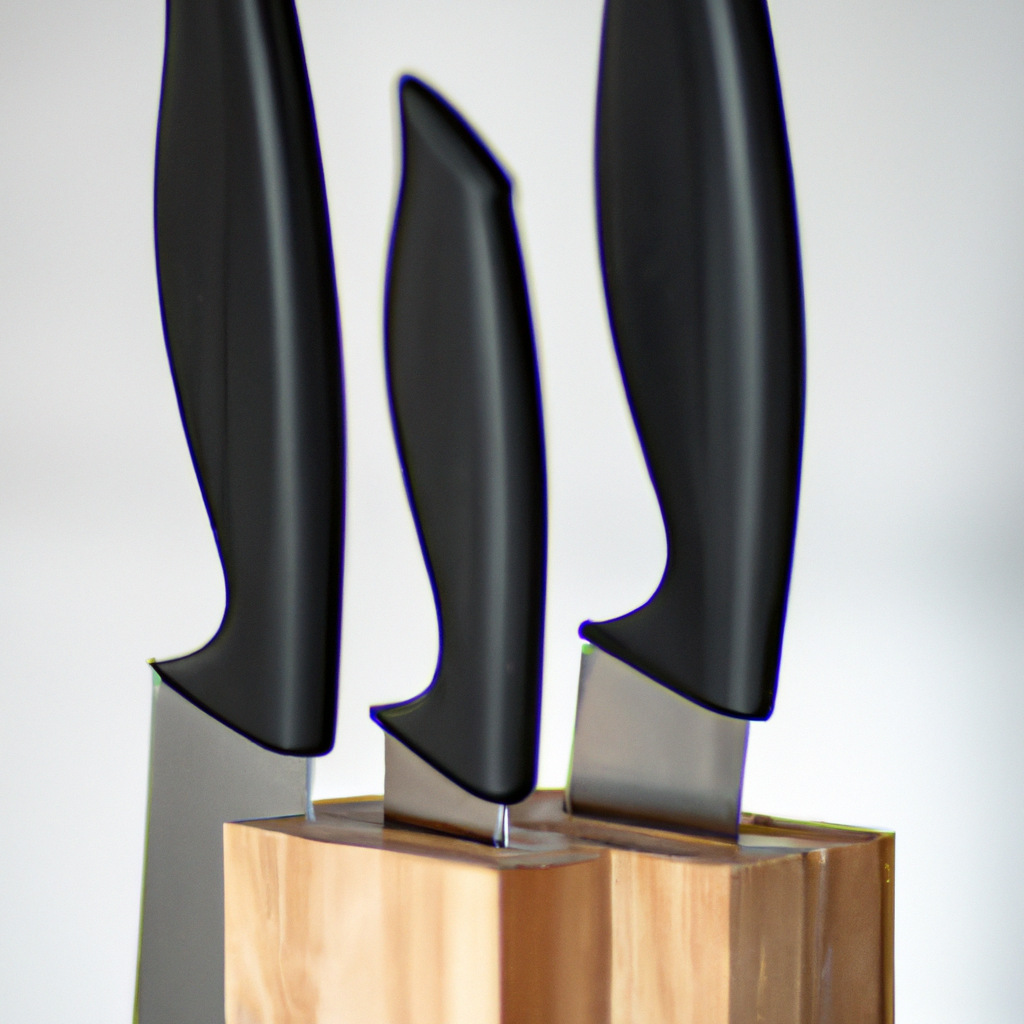The Ultimate Guide to Properly Maintaining and Caring for Kitchen Knives in a Knife Block
nAs a kitchen hobbyist, you understand the importance of having a set of high-quality kitchen knives. These knives are your trusted tools in the culinary world, helping you chop, slice, and dice with precision. To ensure that your kitchen knives stay in top condition and serve you well for years to come, it is crucial to properly maintain and care for them. In this comprehensive guide, we will walk you through the best practices for maintaining and caring for your kitchen knives in a knife block.
nWhy Proper Knife Maintenance is Important
nProper knife maintenance is essential for several reasons. Firstly, it prolongs the lifespan of your knives, saving you money in the long run. When you take care of your knives, they will stay sharp and perform optimally, eliminating the need for frequent sharpening or replacement. Secondly, well-maintained knives are safer to use. A dull or improperly maintained knife can slip and cause accidents in the kitchen. Lastly, proper knife maintenance ensures that your knives retain their aesthetic appeal. A clean and well-maintained knife block adds a touch of elegance to your kitchen.
nStep-by-Step Guide to Maintaining and Caring for Kitchen Knives in a Knife Block
nStep 1: Store Your Knives Properly in a Knife Block
nThe first step in maintaining and caring for your kitchen knives is to store them properly in a knife block. A knife block not only keeps your knives organized but also protects the blades from damage. When storing your knives, make sure to place them in their designated slots and avoid overcrowding. This prevents the blades from rubbing against each other, which can cause dulling or chipping.
nStep 2: Clean Your Knives After Each Use
nCleaning your knives after each use is crucial for maintaining their sharpness and preventing the buildup of food particles or bacteria. To clean your knives, use warm water and mild dish soap. Gently scrub the blades with a sponge or soft cloth, making sure to remove any residue. Avoid using abrasive cleaners or scrub brushes, as they can damage the blades. After cleaning, thoroughly dry the knives to prevent rusting.
nStep 3: Sharpen Your Knives Regularly
nKeeping your kitchen knives sharp is essential for optimal performance. Over time, the blades can become dull from regular use. To maintain sharpness, it is recommended to sharpen your knives regularly. You can use a sharpening stone, honing rod, or an electric knife sharpener. Follow the manufacturer's instructions for the specific sharpening tool you choose. Remember to sharpen both sides of the blade evenly to ensure a balanced edge.
nStep 4: Use Cutting Boards and Surfaces that are Knife-Friendly
nThe surface on which you cut your food can impact the longevity and sharpness of your knives. Avoid cutting on hard surfaces like glass, granite, or metal, as they can dull the blades. Instead, use cutting boards made of wood, bamboo, or plastic. These materials are gentle on the knife's edge and help maintain its sharpness. Additionally, using a cutting board with a groove or a juice groove can prevent liquids from spilling onto your countertop.
nStep 5: Avoid Dishwasher Cleaning
nWhile it may be tempting to toss your kitchen knives into the dishwasher for quick and easy cleaning, it is not recommended. The high heat, harsh detergents, and jostling motion in the dishwasher can damage the blades and handles of your knives. Instead, always hand wash your knives using mild dish soap and warm water. Dry them immediately after washing to prevent rusting.
nStep 6: Use Knife Guards or Blade Covers for Added Protection
nTo further protect your kitchen knives from damage, consider using knife guards or blade covers. These protective covers are designed to fit over the blades and prevent accidental nicks or cuts. When storing your knives in a knife block, place the blade covers over them to keep them safe from any potential damage.
nConclusion
nProperly maintaining and caring for your kitchen knives in a knife block is essential for their longevity, performance, and safety. By following the steps outlined in this guide, you can ensure that your knives stay sharp, clean, and in top condition. Remember to store them properly, clean them after each use, sharpen them regularly, use knife-friendly cutting boards, avoid dishwasher cleaning, and consider using knife guards or blade covers. With proper care, your kitchen knives will continue to be your trusted companions in the kitchen for years to come.



























